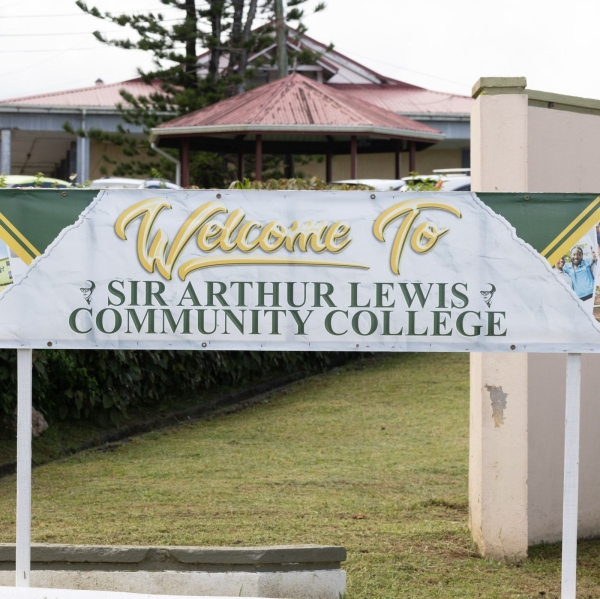At the outset, I will laud any political organisation for any efforts aimed at making tertiary education more accessible and affordable for students. However, I am concerned with Mr Chastanet’s outlined plan to decrease the number of programmes offered at the College.
I cannot fathom why, when Saint Lucia faces multiple educational crises, including low enrolment at the College, students facing difficulties sitting and passing CSEC examinations, literacy crises, and a general ambivalence towards higher education, the appropriate response is to decrease the programmes offered.
The issues facing the college are well-documented. A Medium Term Development Plan for Saint Lucia for the triennium 2020-2023 is instructive in this regard. In 2020, 20% of secondary school leavers enrolled at the institution and this was attributed to low pass rates at CSEC and low availability at the College. The Development Plan, commissioned by Chastanet’s government, noted that only 7% of job seekers had the required qualification level, and that, too, was attributed to poor CSEC grades.
In explaining his position for the decrease, Chastanet blamed poor job readiness and said that the College’s programmes are not suited for the current job market. Unfortunately, his government’s own Development Plan reports that that is not necessarily the case.
Efforts at tackling tertiary level deficiencies among the youth must begin at the secondary school level, where many students – more so their parents – cannot afford the costs of CSEC examinations; where the rates of school drop-outs are higher, and, again, where perceptions of the College and higher education demotivate students to apply.
We must not forget that the Sir Arthur Lewis Community College is the island’s premier and indigenous tertiary-level institution. It is an academic institution, and the issues of funding and enrolment are not solved by reducing programmes. Mr Chastanet, himself, during recent pronouncements, asked of the College’s contribution to the economic development of the country, and I think this is the crux of the mismatch between his plans for the school and what obtains in reality.
The College has produced among the finest men and women in Saint Lucia. From its roots with the Teachers’ College, to where it is now with the Pre-College, Associate's Degree and Bachelor’s Programmes, the College has more than earned its place as an economic contributor, and Chastanet’s insinuation that the institution is found wanting disrespects the efforts of thousands of Saint Lucians.
To compound this, there is what I’d describe as being the condescending analogy to the totality of SALCC’s graduates as being fit for work as “room attendants”. This is not to undermine any singular profession. However, the argument for higher education is severely handicapped and undercut by assuming that the very best of Saint Lucians lies in being a “room attendant.”
Following are Chastanet’s remarks about a room attendant being able to afford to build a house, and this unduly simplifies broader economic realities, like wages and the cost of housing.
Students at the College can, and should, expect of any government the required academic, intellectual, and cultural breadth, coupled with a government prepared to sufficiently diversify the economy so that the youth, who are educated and qualified, can get work.
This thrust on higher education is the spirit that Caribbean governments championed from the mid-20th Century, til now, and Saint Lucians have played their part in this continued fight for the education of the masses. We must continually fight efforts to promote anti-intellectualism, where the education of our youth in the classroom is reduced to training them to be “room attendants”.
Again, the resolution to the issues facing the education sector generally, and the College specifically, are not found in what appears to be cost-cutting policies, masked as broader policy.
The challenges at the College are not fixable by one-sentence pronouncements. Continued collaboration between the Administrators of the institution and the central government, where the objective is to provide the College with the resources needed to function, is the only way forward. Truly, the College occupies such a position of importance in this country that if Administrators request 100 acres of land from the government, it should be given to them, no questions asked.
In all this, the Leader of the Opposition has not indicated that consultation was had with College Administrators, who are best suited to lead any discussion about the future of the College.
For these reasons, I see Chastanet’s plan of “free SALCC tuition for all” as lacking depth and only being truly political.
Commentary by John Tench
Student Leader


